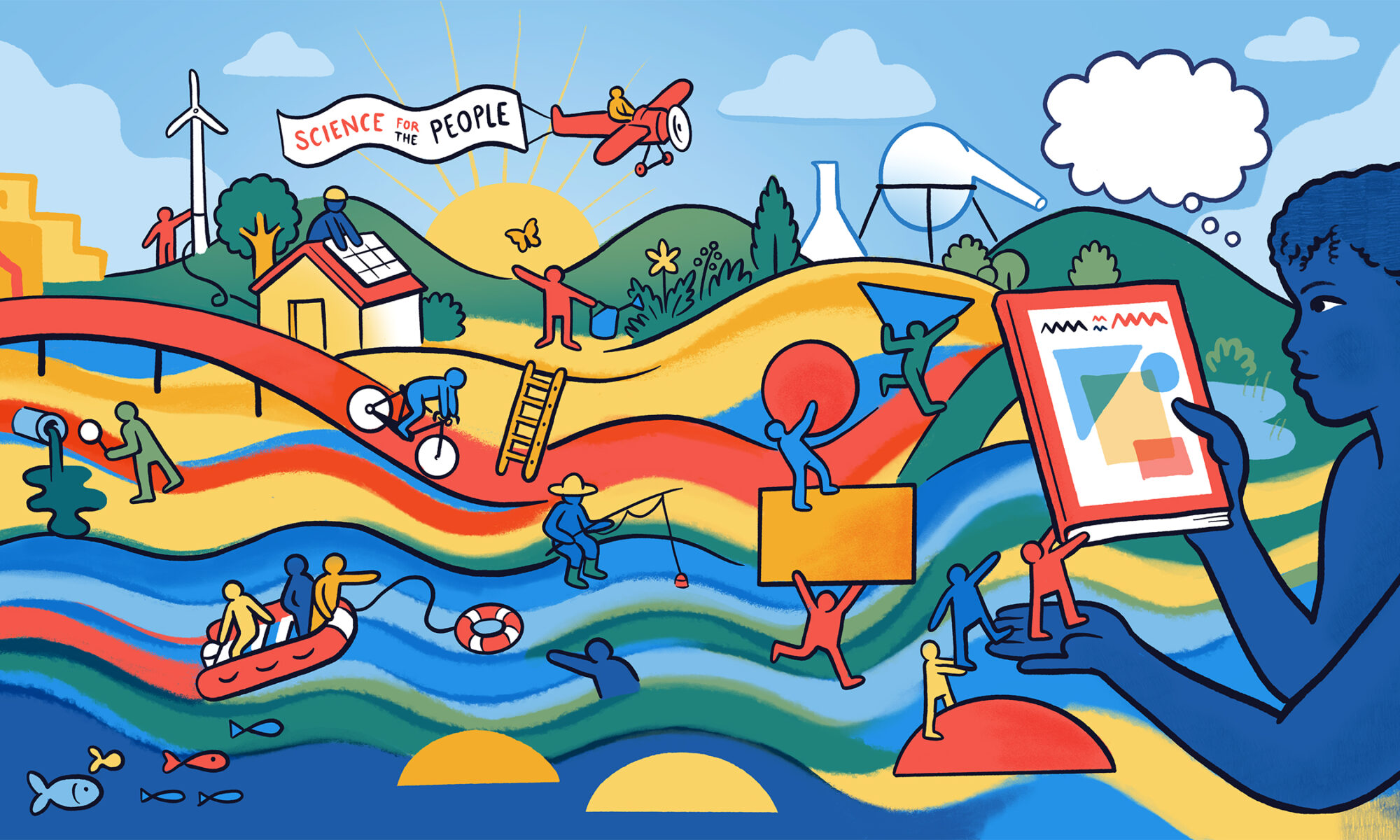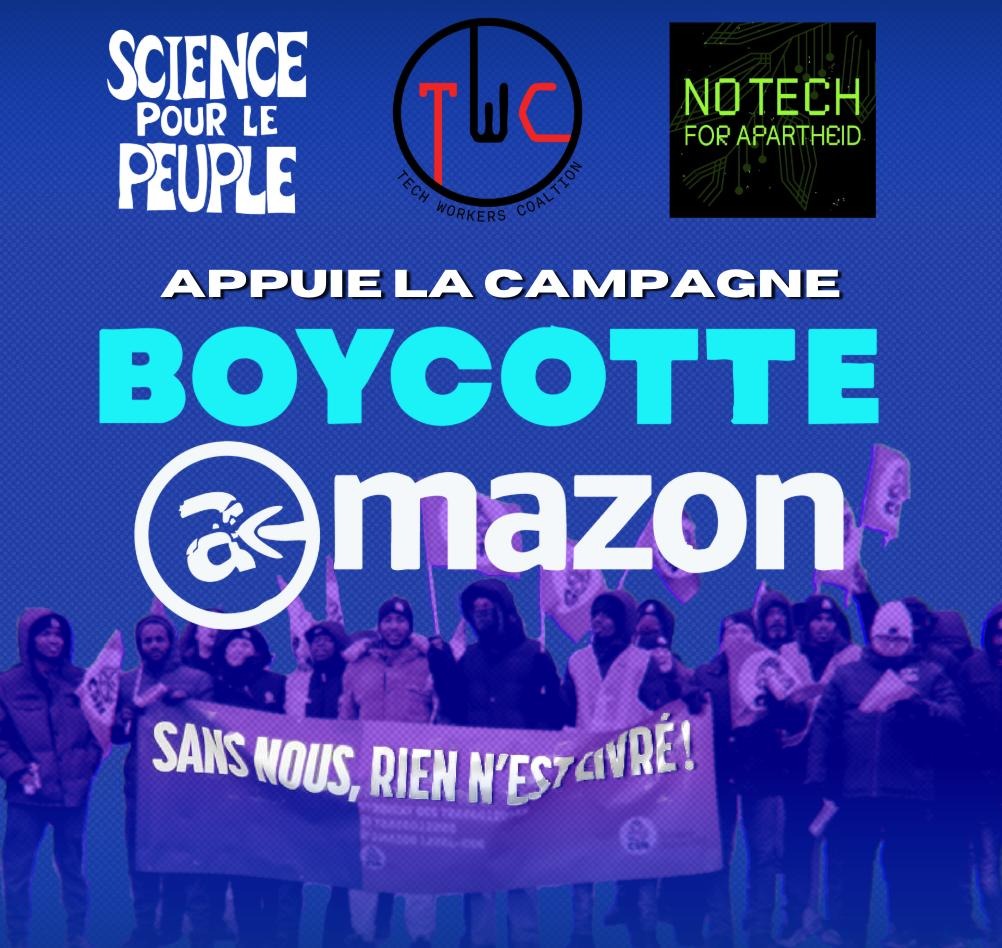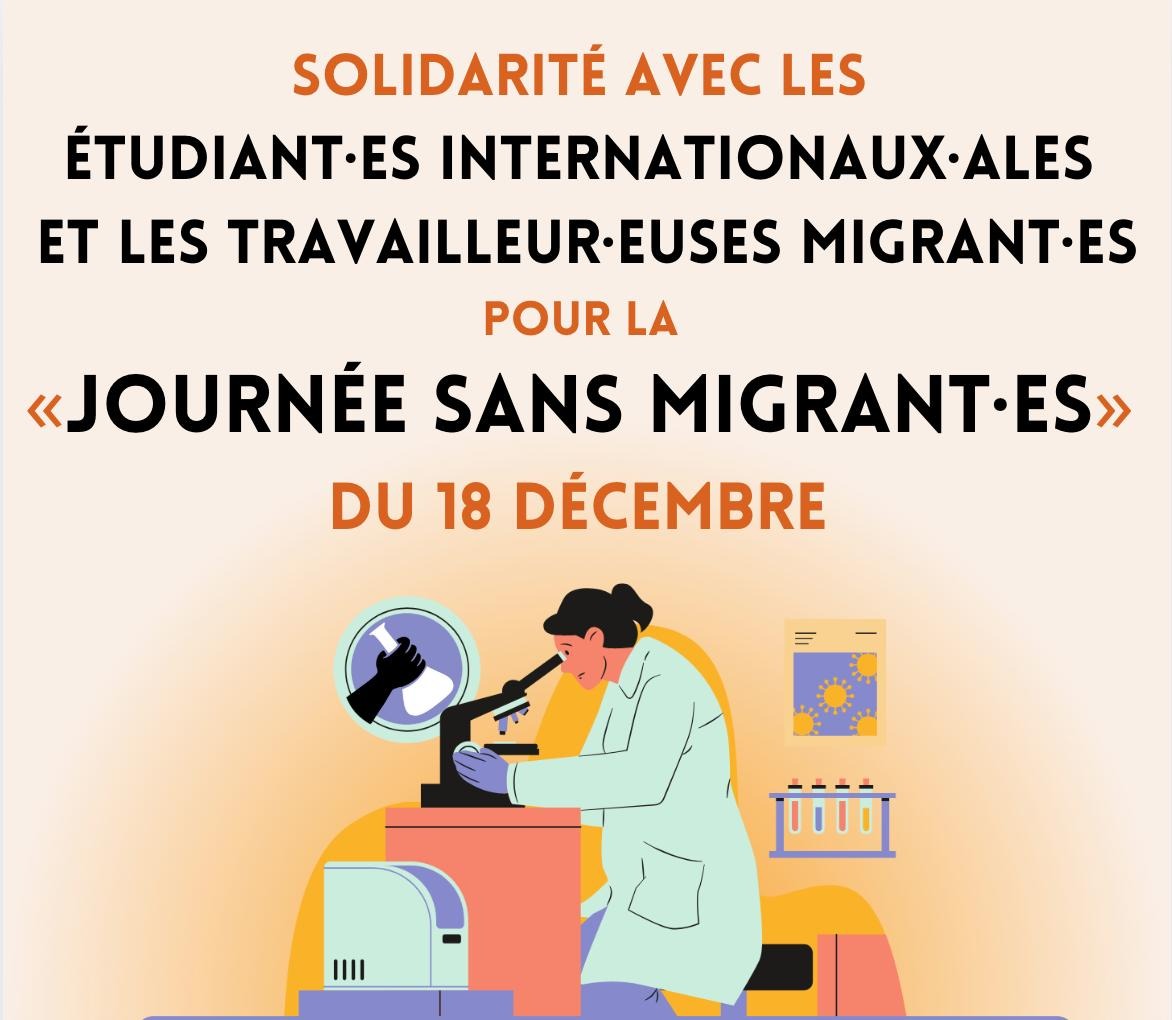This post is a from the Autumn 2023 Rage Climatique journal; read the full journal here. Members of Science for the People Canada are supporting the Week of Climate Rage taking place September 25-29 in Tiohtià:ke (Montréal). Join us at the anticapitalist climate protest, September 29th at 2pm, Place George-Etienne-Cartier.
—
The Community-Industry Relations Group (C-IRG) is a secretive, armed detachment of Canada’s federal police force, specifically established to police Indigenous-led resistance to resource extraction projects. In calls to abolish the C-IRG, we see more clearly than ever how police abolition, ecological restoration, and Land Back are one and the same struggle. To work towards police abolition is to deliver a blow against colonialism, extractivism, the climate crisis, and capitalism itself.
The myth of the “public” sector
Like almost everyone who attended public school in Canada, I was misled to believe that the government played a mostly neutral or even sometimes positive role in conflicts between resource extraction companies and the communities they harmed. Our textbooks were filled with examples of US and Canadian legislators passing regulations and bylaws that seemed to protect everyday people from the pollution of profit-seeking private companies.
The myth that there is any kind of meaningful, antagonistic relationship between Canada’s public sector and Canada’s private sector is a powerful propaganda tool for the capitalist class. The reality is that our settler-capitalist government and its colonial legal system were created in tandem with the establishment of extractive industries, expressly to support capitalist accumulation through violent force. Capitalists established a bourgeois government and colonial police force to remove Indigenous inhabitants, to crush the armed resistance of the people, and to fend off competing American capitalists who would otherwise begin to encroach upon “their” resources. Contrary to what we were all taught in school, in the vast majority of cases, the state holds a gun to the heads of the people so that the capitalist class may rob, drill, pollute, and clear-cut with impunity. “Canada” to this day remains “three mining companies in a trench coat,” no matter how many millions of dollars are spent on “CanCon” media productions that try to fabricate a vacuous nationalist mythology based on hockey, timbits, liberal multiculturalism, and “reconciliation.”
The RCMP: 150 years of colonial violence
The North West Mounted Police (NWMP) was the direct predecessor of the Royal Canadian Mounted Police (RCMP), established in 1873 on the heels of the Métis Red River Resistance. It was created for the express purpose of clearing Indigenous communities from Western Canada and crushing any remaining pockets of rebellion, so that the new settler-colonial state could be joined from coast to coast. In one of the first of many social and ecological crises precipitated by the Canadian state, the NWMP were also in part responsible for the near-extinction of the buffalo on the Western plains. The NWMP immediately embarked on the project of pushing Indigenous people further and further West to allow for encroaching European settlements to establish enclosed cattle ranching, right atop the traditional grazing land of the buffalo. Meanwhile, U.S. settlers engaged in a systematic campaign of buffalo slaughter to clear the way for ranching and white settlements to the South– this was done to try to induce starvation and disease in Indigenous populations, to force dependency on colonial food rations, and to corral Indigenous people onto reservations under the constant threat of starvation. Once the buffalo were all but a distant memory, the police engaged in routinized humiliation and sexual violence by withholding food rations to reserves in order to “secure their access to teenaged Indigenous women,” among other atrocities.
Over the years, the RCMP along with provincial police forces have consistently overseen the rights of the capitalist class to systematically bull doze, clear-cut, and drill on Indigenous land. But they have been met at every turn by heroic anti-colonial resistance and struggle. During the armed conflict at Oka in 1990 over the expansion of a golf course and the development of condos on Kahnienkehaka land, the Quebec police department sent in officers with M-16s, tanks, helicopters, jets, artillery units, and even naval forces to repress resistance at both Kanehsatà:ke and Kahnawake. The armed standoff lasted 78 days and ultimately saw the successful blocking of the golf course expansion. 5 years later, the RCMP carried out a 31-day siege of Secwepemc territory and arrested Ts’peten land defenders during the Gustafsen Lake Standoff in BC. In 2013, the RCMP arrested over 40 Elsipogtog First Nation members opposing shale gas and fracking projects on their territory. These are but a few of hundreds of examples in the history of so-called Canada that highlight the centrality of state police forces in settler-capitalists’ centuries-long crusade to exploit the “rich natural resources” on which the wealth of “Canada” is built.
The Community-Industry Response Group
Today, as the climate crisis worsens and Indigenous-led resistance grows, the reactionary state repression of land defenders has become increasingly efficient and consolidated. Perhaps the clearest demonstration of the identity of interests of state and industry is the creation of the C-IRG (Community-Industry Response Group). The C-IRG is a secretive paramilitary detachment within the RCMP (Royal Canadian Mounted Police), specifically established in 2017 to streamline the violent repression of Indigenous-led resistance against resource extraction projects in BC. So far, at least $50 million has been spent over the last 6 years to surveil and beat back land defenders at Fairy Creek, the Wet’suwet’en-led resistance to the CGL pipeline, several First Nations’ protests against the Enbridge Northern Gateway pipeline, the Coast Salish Nation’s resistance to the Trans Mountain pipeline expansion, and resistance at the Site C hydroelectric dam.
What is known about the C-IRG in BC has been revealed through access to information requests by investigative reporters, and from research led by land defenders like Molly Murphy in collaboration with Research for the Frontlines. The C-IRG has been described as free “mercenaries” for the oil and gas industry, hired and paid for through public tax dollars. This special detachment consists of “volunteer” RCMP officers who specifically put their names forward to work alongside private industry to police Indigenous-led resistance to pipeline construction and logging. Some are paid $100 per hour, working 18.5 hour shifts at a time. They routinely remove their name badges to avoid accountability for misconduct, and have become infamous for sporting fascist “thin blue line” badges in their place. The group is funded through a 70:30 split between the provincial and federal governments. In other words, the C-IRG is a racist, self-selected, highly remunerated, state-funded paramilitary group that provides free intelligence and “quick-response” armed security for the owners of oil, gas, logging and mining companies.
Among their favourite tactics is stimming– a psychological warfare technique where cops play unnerving noises and keep bright lights on at all hours of the evening in the campsites, walking through the camps non-stop to prevent land defenders from getting rest. This is meant to break land defenders’ morale and create tensions within the camp. Floodlights, loud speakers, cameras, and other sensors are trained on the sleeping quarters of prominent activists. During confrontations, the C-IRG is also authorized to use “pain compliance” techniques, including face holds that involve gouging land defenders’ eyes with the index and middle finger.
“Private-public partnerships” are the colonial way
The RCMP also collaborates intimately with private firms to spy on activists. At Fairy Creek, they helped the Teal Jones logging company’s private security agents infiltrate activist camps, who then conducted covert ops and shared surveillance intelligence with the C-IRG. If ever there were any doubts about the extent of collusion and coordination between the RCMP and private industry, some at Fairy Creek reported company loggers physically pinning down land defenders then calling over C-IRG officers to finish the job. In other words, loggers openly assaulted individuals with impunity, right in front of police officers, in order to facilitate their formal arrest.
As these investigations point out, injunction law is the resource extraction industry’s greatest weapon, allowing judges to consider each case in isolation without regard to the validity of Aboriginal Title. All the company needs to do is make the case that they will suffer “irreparable harm” if their project is not allowed to advance. The majority of the C-IRG’s operations consist of the armed enforcement of these illegitimate civil injunctions.
The C-IRG is currently under CRCC review after the RCMP received over 500 complaints in areas where the detachment was active. But no matter how much the Canadian state attempts to reform, rename, or rebrand these forces under different names or through “cultural sensitivity training,” we must never be fooled. Our capitalist government will never support Land Back in any material sense– it will never allow for the collective stewardship of our forests, mountains, and waterways so long as there is more profit to be squeezed from the mines, fracking projects, and monocultures of lumber.
For those still holding out hope that electing a “progressive” party might help stall or reverse the climate apocalypse, it’s worth remembering that almost all of the violent crackdowns on Indigenous groups by the C-IRG in BC were funded and supported by the so-called “progressive” provincial New Democratic Party (NDP), who have held a majority government in the province since 2017. In 2022, they pledged $230 million in additional funding to the RCMP to grow rural police detachments, recognizing the increased importance of protecting the capitalist class’s massive mining, logging, and natural gas projects in the face of growing Indigenous-led resistance.
“Democratic” elections at both the provincial and federal levels in Canada have time and time again proven to be highly effective propaganda campaigns– they are exercises in democracy for the capitalist class only, who get to select every four years the particular flavour of welfare-state capitalism or free-market capitalism they’d like to enjoy. In a faux-democratic system designed and controlled by settler-capitalists to serve the interests of resource extraction and labour exploitation, there has never been an electoral party that truly and materially delivers on Land Back. Capitalists rest easy knowing that state-funded mercenaries like the C-IRG will always be there to back up their pipelines and logging projects, no matter the colour of the posters that hang in the office of the incumbent.
Abolition and environmental stewardship are the same struggle
Police abolition– and especially the abolition of the RCMP– is central to the fight against ecocide and climate change. If completed, the 670-km Coastal Gas Link pipeline will transport 2.1 billion cubic feet of natural gas to export terminals on the coast, to be processed, exported, and burned. Canadian liquified natural gas exports are set to soar thanks to new market penetration opportunities brought about by the war in Ukraine, with new export terminals being considered on the West Coast, East Coast, and even in Québec.
And now, seizing the opportunity to greenwash the production of semiconductors and batteries, the Canadian state has arbitrarily labeled a whole host of new metals and minerals as “critical” and “essential,” in much the same way that “oil and gas” was labeled critical infrastructure in the mid-2010s. This designation, in conjunction with Stephen Harper’s Bill C-51, means that resistance to fossil fuel extraction can now be considered domestic terrorism– with Indigenous land defenders and their supporters labeled members of “fringe terrorist groups” by intelligence agencies. As Canada expands its domestic mining operations to deliver on “critical mineral” for “green” batteries and semiconductors, their promotion of these mines to “critical infrastructure” could allow the state to come down on protestors with the full force of its intelligence, surveillance, and paramilitary apparatus.
There is an inextricable and increasingly obvious link between police abolition and ecocide. Accelerating extreme weather events and climate-related catastrophes make the former an ever more urgent necessity, because climate disasters and social upheaval only strengthen the fascist tendencies of the liberal capitalist state, as demonstrated by the creation of the C-IRG. To dream of reversing or even just curbing our precipitous ecological decline, and slowing the exponential proliferation of extreme weather events, we must make rapid and sustained progress towards abolishing the armed forces that have enabled capitalists to exploit the land for far too long.
MORE READING ON C-IRG:
Support the Abolish C-IRG campaign: https://abolishcirg.org/
1. APTN (“Behind the thin blue line” – Brett Forester): https://www.aptnnews.ca/ourstories/cirg/
2. Briarpatch (“The C-IRG: the resource extraction industry’s best ally” – Molly Murphy): https://briarpatchmagazine.com/articles/view/the-c-irg-the-resource-extraction-industrys-best-ally
3. Briarpatch (“Real climate action means defunding the police” – Molly Murphy): https://briarpatchmagazine.com/articles/view/climate-action-defunding-police-CIRG-RCMP-Fairy-Creek
4. RCMP 150: https://rcmpheritage.ca/




